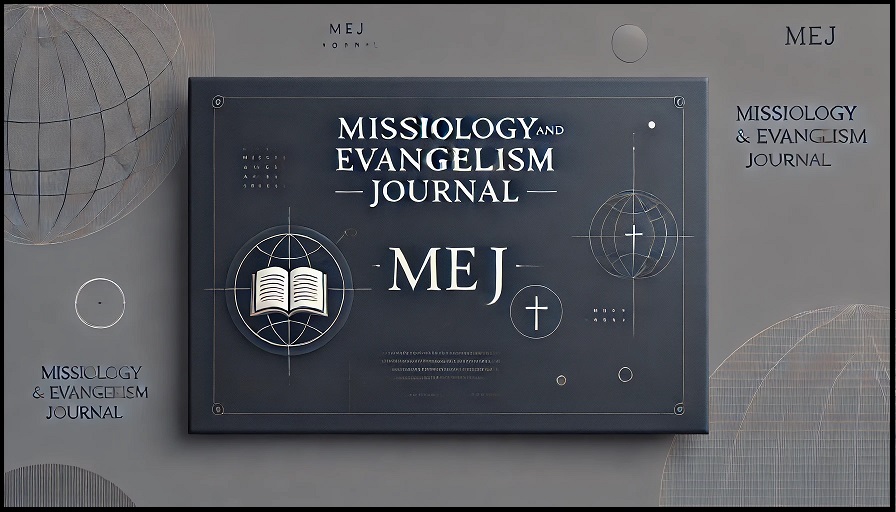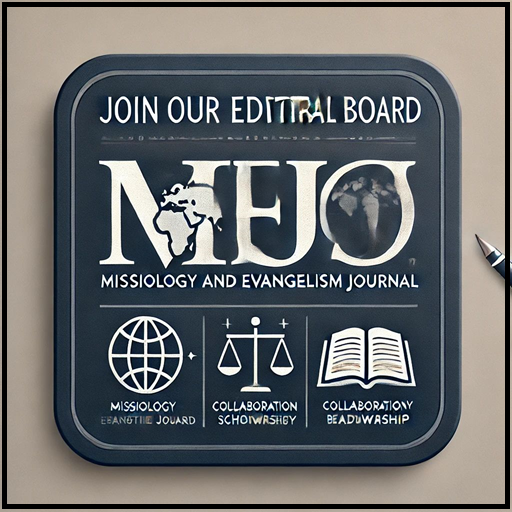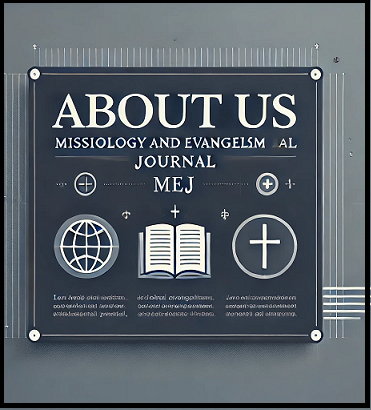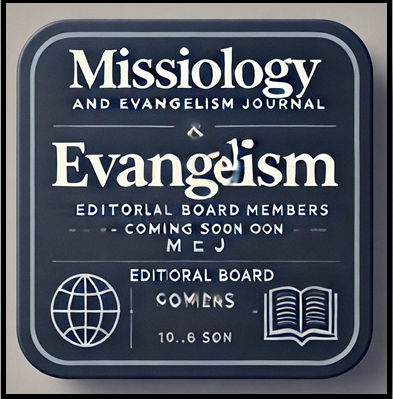Editorial Policy and Practice for the Missiology and Evangelism Journal
I. Objective of the Journal
The Missiology and Evangelism Journal exists to advance the study and practice of Christian mission and evangelism in a global context. Its primary objectives are:
- Foster Biblical Understanding: Promote theological and scriptural insights into the principles and practices of mission and evangelism.
- Encourage Global Perspectives: Highlight diverse approaches to evangelism and mission work across cultures, addressing the challenges and opportunities unique to each context.
- Bridge Theory and Practice: Provide a platform for research and dialogue that integrates academic scholarship with practical strategies for effective evangelism.
- Equip Practitioners: Support pastors, missionaries, evangelists, and ministry leaders by offering tools, case studies, and best practices for advancing the Gospel.
- Facilitate Interdisciplinary Research: Explore how theology, sociology, anthropology, and other disciplines inform mission strategies and evangelistic engagement.
By addressing these goals, the Missiology and Evangelism Journal seeks to inspire and equip individuals and communities for faithful participation in the Great Commission.
II. Editorial Board
The Editorial Board comprises distinguished scholars with expertise in various fields of Missiology and Evangelism, and related disciplines. The board is responsible for:
- Ensuring the academic integrity of published articles.
- Advising on the journal’s strategic direction and scope.
- Overseeing the peer-review process to maintain impartiality and quality.
Editorial board members are selected based on their scholarly achievements, expertise, and commitment to advancing Missiology and Evangelism.
III. Review Process
All manuscripts submitted to the journal undergo a rigorous double-blind peer-review process, which includes the following steps:
1. Initial Screening: The editorial team reviews manuscripts to ensure they align with the journal’s scope and formatting guidelines.
2. Peer Review: Qualified reviewers with expertise in the relevant area evaluate the manuscript for originality, methodological rigor, clarity, and scholarly contribution.
3. Editorial Decision: Based on reviewers’ feedback, the editorial board makes one of the following decisions:
- Accept with minor revisions.
- Major revisions required.
- Reject.
The review process typically takes 6-8 weeks.
IV. Reasons for Rejecting a Manuscript
Manuscripts may be rejected for the following reasons:
- Lack of originality or scholarly contribution.
- Poor methodological or analytical rigor.
- Failure to align with the journal’s scope or objectives.
- Issues with academic integrity, such as plagiarism or ethical breaches.
- Insufficient clarity or organization of ideas.
V. Procedures
Manuscript Submission and Processing
- Authors must submit manuscripts via the journal’s email address provided or via online submission portal.
- Submissions must adhere to the journal’s formatting and citation guidelines.
- Manuscripts are anonymized for the review process to ensure impartiality.
- Authors are notified of the decision promptly upon the completion of the review process.
VI. Obligations of Authors
Authors are expected to:
- Submit original work that has not been published or submitted elsewhere.
- Properly acknowledge all sources and contributors.
- Adhere to ethical guidelines for research, including obtaining necessary permissions for studies involving human subjects or copyrighted material.
- Respond promptly and professionally to reviewers’ comments and requests for revisions.
- Disclose any conflicts of interest.
VII. Obligations of Reviewers
Reviewers play a critical role in maintaining the journal’s academic integrity. They are expected to:
- Provide objective and constructive feedback.
- Maintain confidentiality and not disclose or use the manuscript’s content for personal purposes.
- Declare any conflicts of interest and recuse themselves if necessary.
- Complete reviews within the agreed-upon timeframe.
Contact Information
For further details or inquiries, please contact the Editorial Office at [mej@gospeljournals.org].
The Missiology and Evangelism is committed to fostering a culture of academic excellence, transparency, and ethical scholarship in Missiology and Evangelism . Thank you for your contributions and support.



